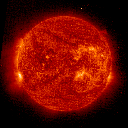Mark Twain jumps ship at Sandy Beach
 The brilliant American author and humourist, Mark Twain, arrived in Australia on September 15, 1895, spent about three months here and wrote of his travels in Following the Equator.
The brilliant American author and humourist, Mark Twain, arrived in Australia on September 15, 1895, spent about three months here and wrote of his travels in Following the Equator.And in his book, More Tramps Abroad, he recorded a remarkable observation on the people he found on this continent:
The Australians do not seem to me to differ noticeably from Americans, either in dress, carriage, ways, pronunciation, inflections, or general appearance.
He also wrote about my town. Well, not Sandy Beach exactly, which isn't a town, but the nearest one (7 kilometres) and the place where I buy my food, Woolgoolga (see map):
In the weltering hell of the Moorooroo plain
The Yatala Wangary withers and dies,
And the Worrow Wanilla, demented with pain,
To the Woolgoolga woodlands
Despairingly flies.
Did Mark Twain stop in at Woolgoolga on his travels? The question isn't entirely rhetorical, because perhaps a reader can tell me. I would love to get a copy of his Aussie itinerary. I suspect he got the exotic-sounding words from a map and other documents, and in an idle moment, perhaps on the deck of a steamer, or in a Sydney hotel late at night after one of his successful lectures, strung them together just for fun.
Possibly the steamer stopped in at Woolgoolga or nearby Coffs Harbour on its 1,000-kilometre journey from Sydney to Brisbane, to load wood and fresh water for its boiler.
It is tempting to conjecture that Twain, who said of himself "I am a revolutionist -- by birth, breeding, principle, and everything else", if he were steaming by Sandy Beach and Woolgoolga in our day, might not wish to return home. He was a fervent anti-imperialist and anti-war activist, as his 'The War Prayer' attests.
As Vice-President of the Anti-Imperialist League from 1901 till his death in 1910, he wrote extensively on the theme, and some of his works he asked to be not published until after his death, because he knew how strong the forces of war and American empire were during his lifetime. His progressive worldview dogs him even to this day: His The Adventures of Huckleberry Finn is the fifth most challenged book in the American library system, ie, by readers who wish it removed from the shelves. That process of banning Huck had been started in Denver, CO, as early as 1885 by a General Funston.
Part of me imagines Twain wanting to jump ship and camping out in the Woolgoolga woodlands rather than having to face for another time the strenuous attacks of those for whom war is a matter of pride and profit.
I must add that in Following the Equator, Part I, Twain refers to the Ornithorhyncus, or platypus, which happens to be (along with hail and the kookaburra), my totem: the platypus is "... that curious combination of bird, fish, amphibian, burrower, crawler, quadruped, and Christian called the Ornithorhynchus -- grotesquest of animals, king of the animalculae of the world for versatility of character and make-up."



















1 Comments:
Many aboriginal words lend themselves to the sort of nonsense verse that Twain thought up. It brings Lewis Carroll's wiffling Jabberwock to mind and I wonder whether Mark Twain had read this.
'Twas brillig, and the slithy toves
Did gyre and gimble in the wabe.
All mimsy were the borogoves,
And the mame raths outgrabe.
'Beware the Jabberwock, my son,
The jaws that bite, the claws that catch.
Beware the jubjub bird, and shun
The frumious bandersnatch.'
He took his vorpal sword in hand;
Long time the manxome foe he sought.
Then rested he by the tum-tum tree,
And stood awhile in thought.
And as in uffish thought he stood,
The Jabberwock, with eyes of flame,
Came whiffling through the tulgey wood,
And burbled as it came!
One! two! and through and through
The vorpal blade went snickersnack!
He left it dead, and with its head
He went galumphing back.
'And hast thou slain the Jabberwock?
Come to my arms, my beamish boy!
O frabjious day! Calooh! Calay!'
He chortled in his joy.
'Twas brillig, and the slithy toves
Did gyre and gimble in the wabe.
All mimsy were the borogoves,
And the mome raths outgrabe.
Post a Comment
<< Home